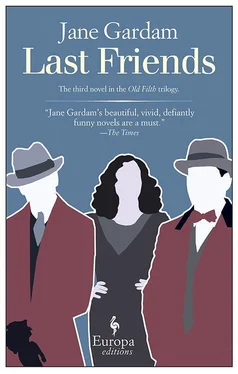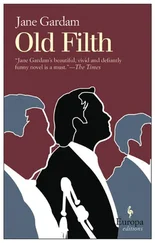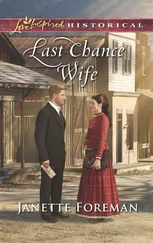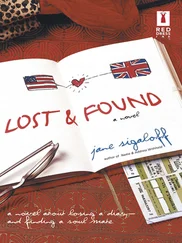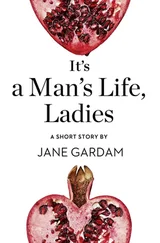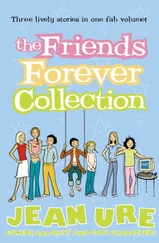‘Yes.’
‘Yes, Sir.’
‘Yes, Sir.’
‘Now, look at the dark hyacinth-blue of the umbrageous mountains (look up ‘umbrageous’: and ‘hyacinth’ too, they both have a splendid classical root). Tell me, do you care for birds?’
‘Well, I think we only have sea-gulls at Herringfleet.’
‘A pity. And most unlikely. Birds can be a great solace. They never love you and you can never own them. Dogs often — and even cats sometimes — can cause pain by their enduring love. Sycophancy (look that up) is never to be encouraged.’
(Who is he? A madman? I like him.)
‘And although I wish I could have the privilege of teaching you, you are, as I say, a little old. We stop at twelve or thereabouts. Where are you bound for next, I wonder?’
For the first time it occurred to Terry that he had not the faintest idea.
‘I should like to come to your school, Sir, but I don’t think there is any money. I stand to inherit £25, but not until my benefactor is dead.’
‘Is that per annum, boy?’
‘No. It will be net.’
‘Ah.’
‘I could make an exception,’ said Sir, ‘but I will not. We might grow fond of each other, I fear that we are unlikely to meet again.’
‘I’m very sorry, Sir.’
‘Yes. I have to admit that I am often very sad, when a boy leaves my school (though not always). There was one excellent boy called Feathers came to me. Left a year or so ago. Had a cruel stammer. We cured it in a term. He’ll be a barrister. You’ll see. Rather your sort of calibre. Feathers will have a charmed life and he deserves it for he had a terrible start. He was unloved from birth. Whereas you — boy — I understand have had a loving home and interesting parents. This will get you through everything. Almost. Because you were loved you’ll know how to love. And you will recognise real love for you. Here we are.’
The school was on a hill up from a lake that gleamed through black fir trees. Boys erupted through its front door and took charge of a large package, the size of a double-bedded bolster, which Sir took from somewhere beneath his feet. ‘Warm it up at once. Fish and chips. Hake. Irish sea. Made me late at Liverpool. Hake a wonderful fish, not common. Good for the brain (look up “hake”. Is it Viking?). God bless our fishing boats. No car here yet? No Mr. Smith to take you home? Boys, this is Terry Veneering. Yes.’
The boys were all disappearing into the school with the bolster. ‘Veneering, you’ll have to stay the night,’ said Sir and Terry felt suddenly that it had been a long day.
* * *
He stayed for three nights with Sir and there was no message from Herringfleet. He slept in an attic and listened to the birds. He was hauled in to help with football and was a success. In the gymnasium it was even better. ‘You may start them on Russian,’ said Sir, passing by on the third day. ‘We may all be needing it soon. I forbid German, however.’
‘I think there’s a car, Sir.’
‘Where?’
‘Standing in the drive. It might be Mr. Smith.’
‘Excellent. Start now. First Steps in Russian with Class 1. Call them “First Steppes” and see if they get—. I will send for you. You are right. It is Mr. Smith. They are approaching slowly: There seems to be a priest with him.’
An hour later Terry was summoned to the Parents’ Waiting Room where a tray of tea and Marie biscuits, off the ration, had been laid out and Mr. Smith and Father Griesepert told him that both his parents had been killed in the air-raid on Herringfleet the night he left home. Muriel Street was gone, as were the old rabbit-hole houses in the dunes. Mr. Parable-Apse was dead, along with the people in the ticket-office, and nobody had seen Nurse Watkins.
* * *
Terry was to leave that same evening in Mr. Smith’s car. Father Griesepert was a governor and an old boy of a famous Catholic boarding school where it was hoped Terry would remain for the next few years. He went to see Sir again by himself and found him seated at a desk which looked far too big for him, staring ahead.
But he was talking before Terry was through the door. ‘Remember,’ he said, ‘You will not only survive but you will shine. Remember the boy, Feathers. You will outshine him. I know, I am never wrong.
‘But remember — I am only a walk-on part in your life. This is merely a guest-appearance. You will have to get down to your own future now.’
Pompous, Terry thought. Totally self-absorbed. Stand-up comedian. Needs adulation. Probably homosexual. Twerp.
‘And so, goodbye, Veneering.’
‘Goodbye, Sir. And thank you.’
‘Hurry up. I have work to do. Mr. Smith is waiting.’
Veneering turned at the door to shut it behind him and saw Sir staring ahead, his eyes immense, wet beneath his glasses. Unseeing.
On her Memory-Dream mattress sixty years later Dulcie was now listening to the Dorset rain. A sopping Spring. At last she heard the swish of Susan’s car returning from the station, the front door opening and closing. Some kitchen sounds. The radio—.
(She’s taking her time to come up.)
‘Susan? Susan? Is that you? Are you back?’
‘You know it’s me, I’m getting your lunch. Here. Sit up. Soup and cheese. I seem to have been bringing people food all day. Oh, don’t snivel , Ma. I suppose you’ve forgotten that I’m going home tomorrow?’
‘No, I haven’t. Is Herman going too?’
‘Where else d’you think he’ll live?’
‘And I’m not snivelling. It’s a cold. I must have caught it in the church.’
‘The less said about that the better. Ma — tell me something. Did Fiscal-Smith have some sort of a thing about Veneering? I always thought it was Old Filth he was mad about.’
‘Thing?’
‘Is he gay?’
‘Oh my dear! Good heavens, no. He’s 80 plus.’
‘He’s not related to Veneering, is he? Told me at the station he’d known him since they were eight.’
‘Well, they’re both from the North somewhere. Nobody knows. The North is big I suppose. I must say they’ve both dealt pretty well with the accent. They’re both Roman Catholics. Expensive schools and Oxford.’
‘How weird. It’s just that Fiscal-Smith, poor little scrap, flipped a bit as the train came in. Made a speech at me about Veneering. At me. Eyes glittering. Very odd. He kept pressing that lighted button on the carriage door and all the doors kept opening and closing.’
‘Once,’ said Dulcie, looking away, ‘you were fined twenty-five pounds for that. Pulling the cord for fun. We did it once at school and then we all jumped out and ran across the fields and my foster family nearly killed me. I wrote to my father in Shanghai to come and rescue me and he wrote back saying he would never write to me again and nor would my mother until I’d written letters of shame to everyone, including the railway company. It was the dear old LMS.’
‘Whatever that was. Here, Ma. Eat your rhubarb.’
‘I hate the way people call it rhubarb now. It should be rhu-BUB. Only the Queen and I pronounce it properly.’
‘When did you discuss rhubarb with the Queen? The last thing — when the doors did close — Fiscal-Smith was saying was that Veneering once had a different name and he was some sort of a hero. Very brave. Huge admiration. Did you know?’
‘Perhaps he was Veneering’s best-man, too.’
‘Oh now! Veneering was married frightfully young. When he was doing his national service in the Navy after the War. His ship was showing the flag around the Far East. He met and married Elsie ten years before he met the rest of us. Before he met Betty.’
‘Yes. We know all that. Everyone knew his wife drank. People always do.’
Читать дальше
